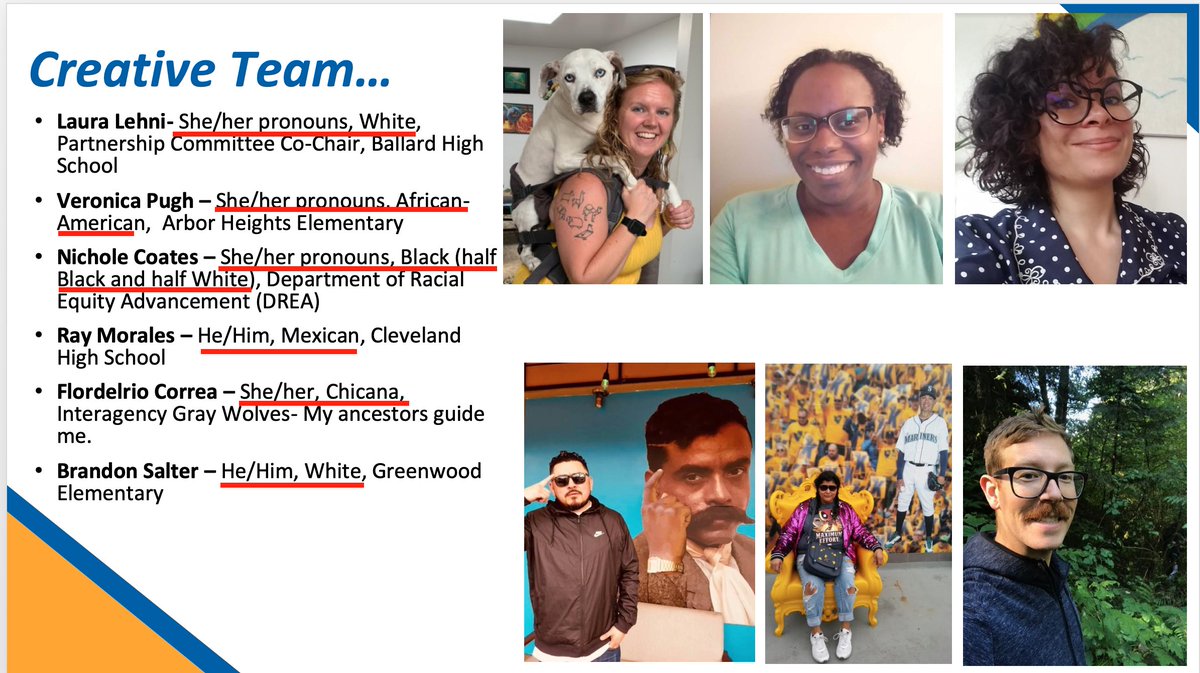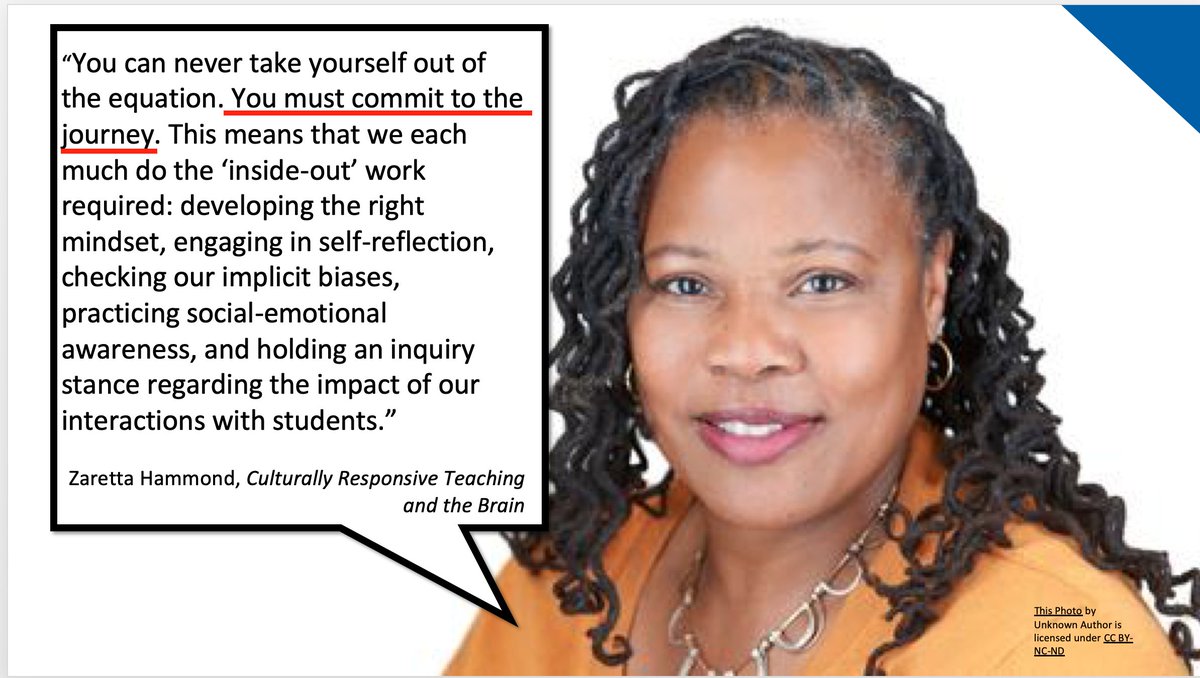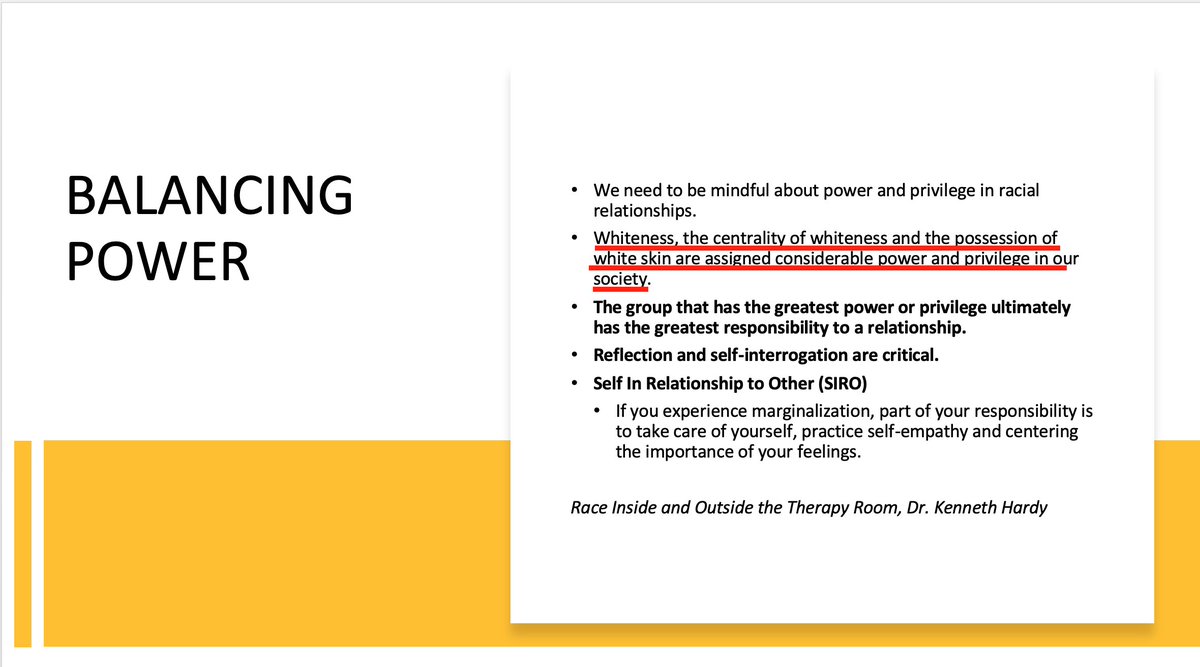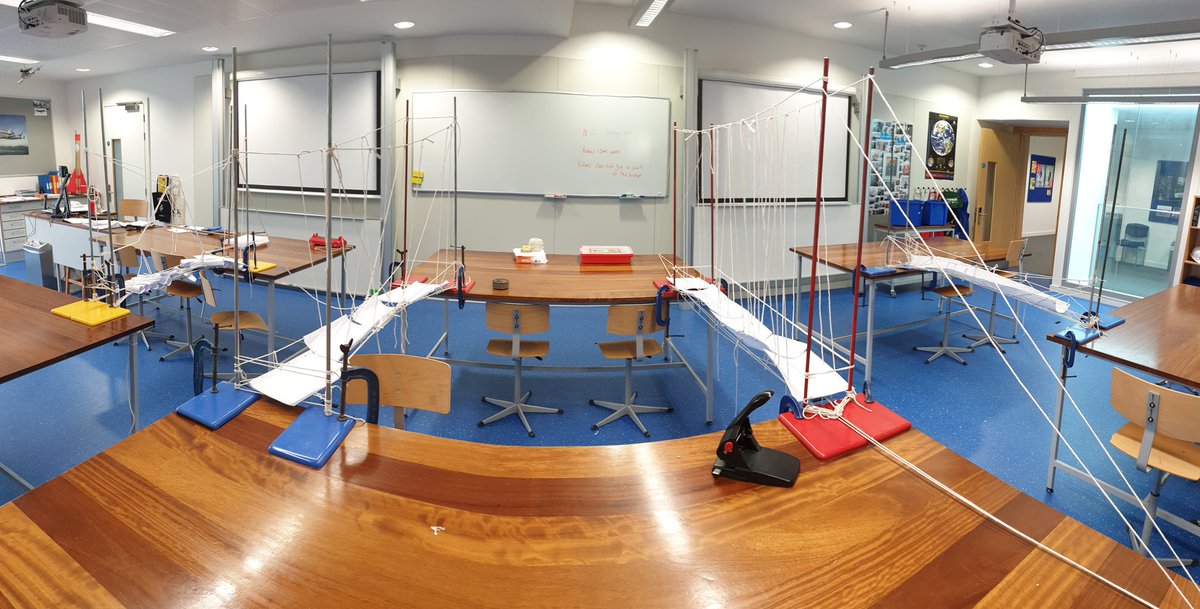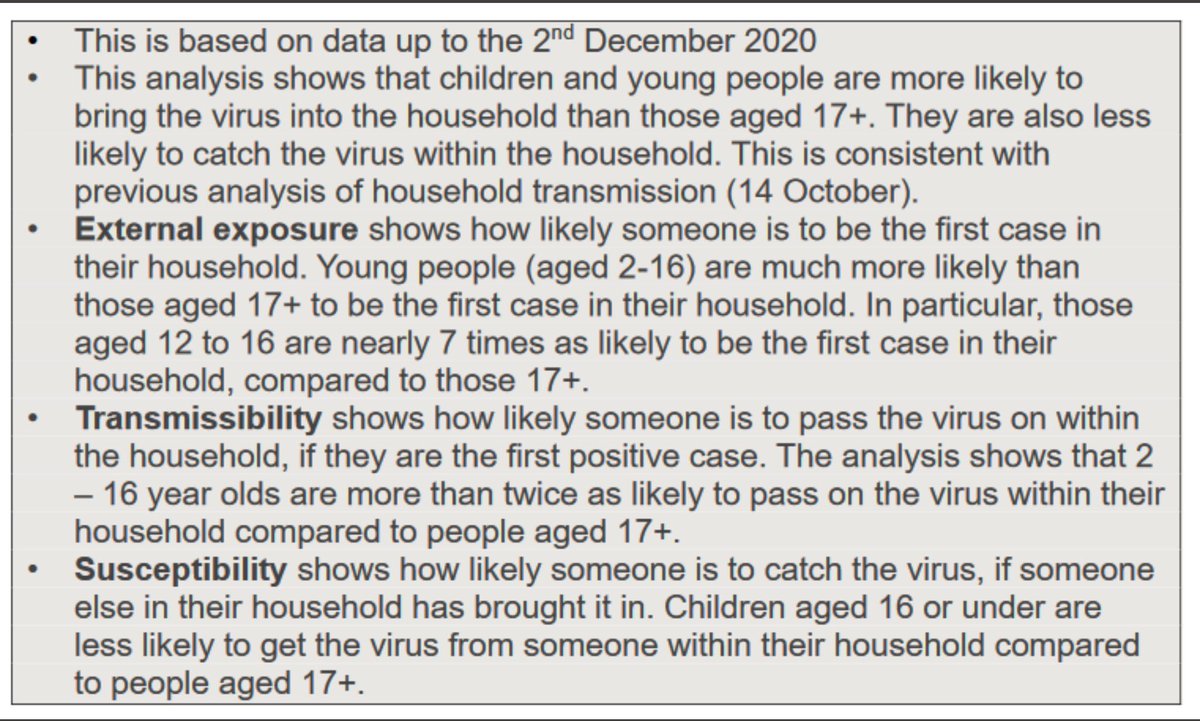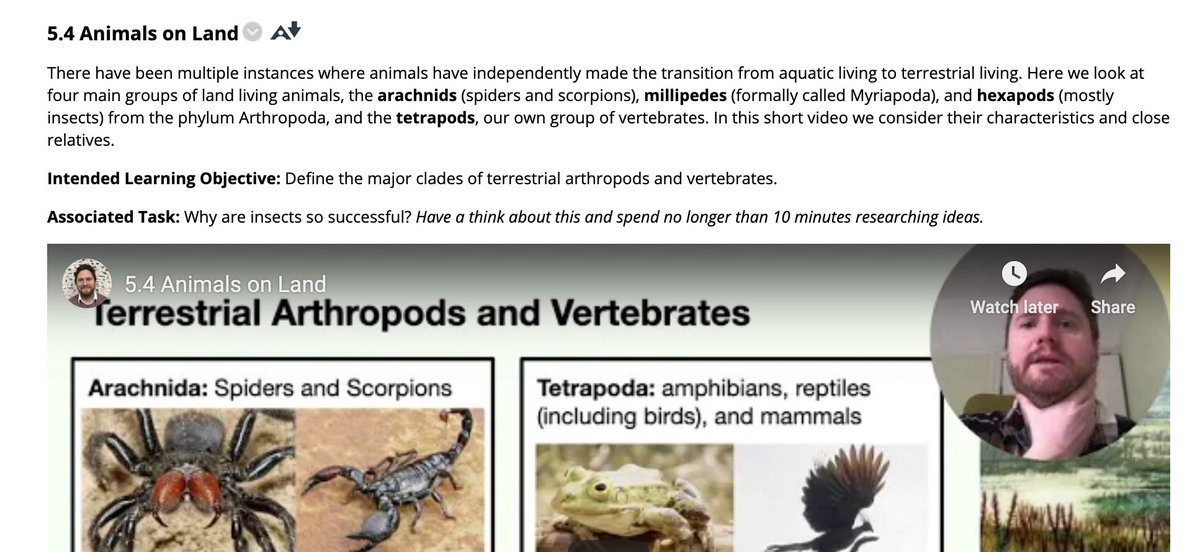Categories Education
As promised, let's start the year by discussing Germany.
Tag your friends, take fruit juice and unwind this thread🧵:
In Part A, I will discuss what you need to know about Admission and Scholarship in Germany, In Part B, I will show you how to practically apply and get funding.
Read the following general facts about Germany:
1. About 80-90% of the Universities are tuition-free.
However, in some states, you may be asked to pay about 1000-3000 Euros/semester, which covers student union fees and travel tickets around the state for a semester.
2. Most Msc students don't search for scholarships. Instead, they look for a block account of about 10, 000
Euros.
Read: https://t.co/sg9sZomuxA.
3. From the block account, the Govt pays you about 850 Euros monthly for Living expenses.
Check:
4. If you can find a way to get the block account, you have the chance of recouping your money back and much more because student job is around 1000 Euros/month, and it's about 20-40hrs /week.
Read:
The Chicago Teachers Union is now threatening to refuse to return to work in person.
https://t.co/MgDgNe6REj
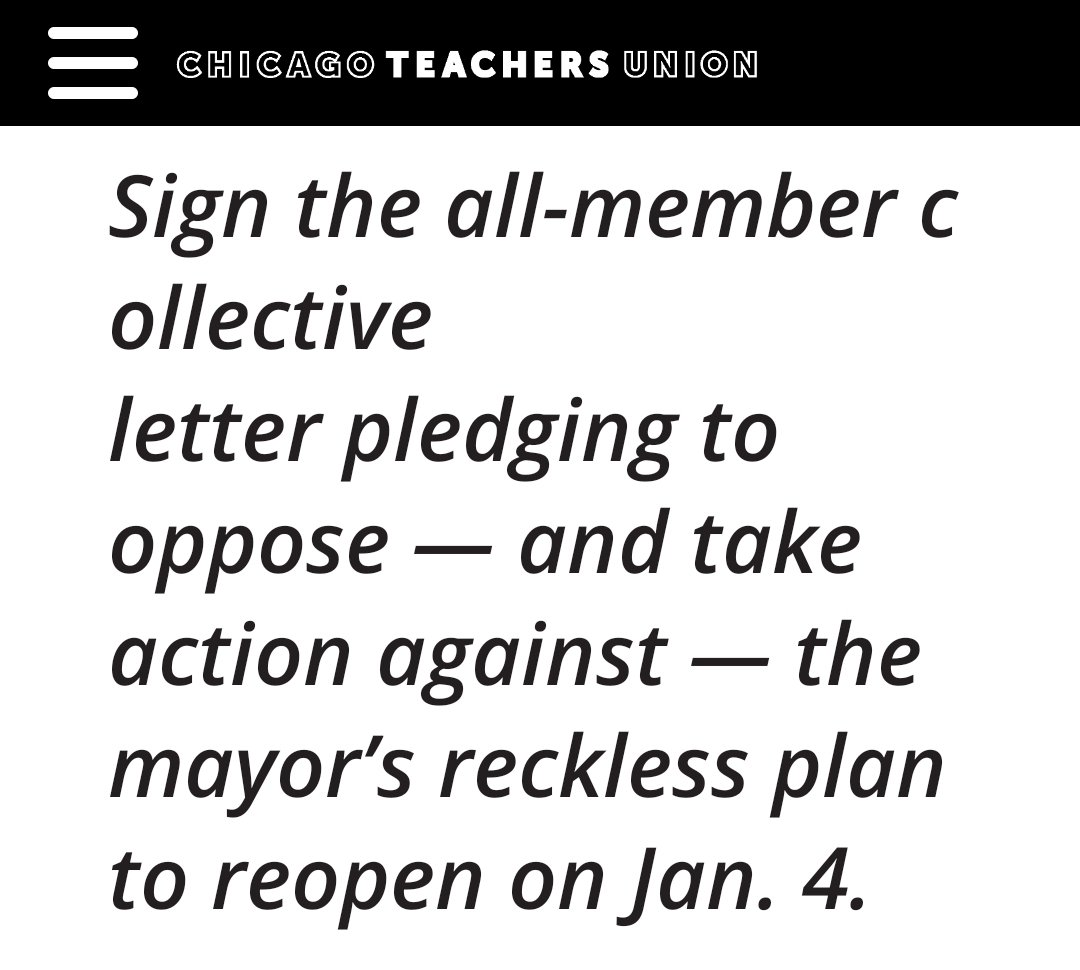
Meanwhile
https://t.co/FIij8J3r7z
Dr. Fauci: "The default position should be to try as best as possible within reason to keep the children in school or to get them back to school [...] if you look at the data the spread among children and from children is not really big at
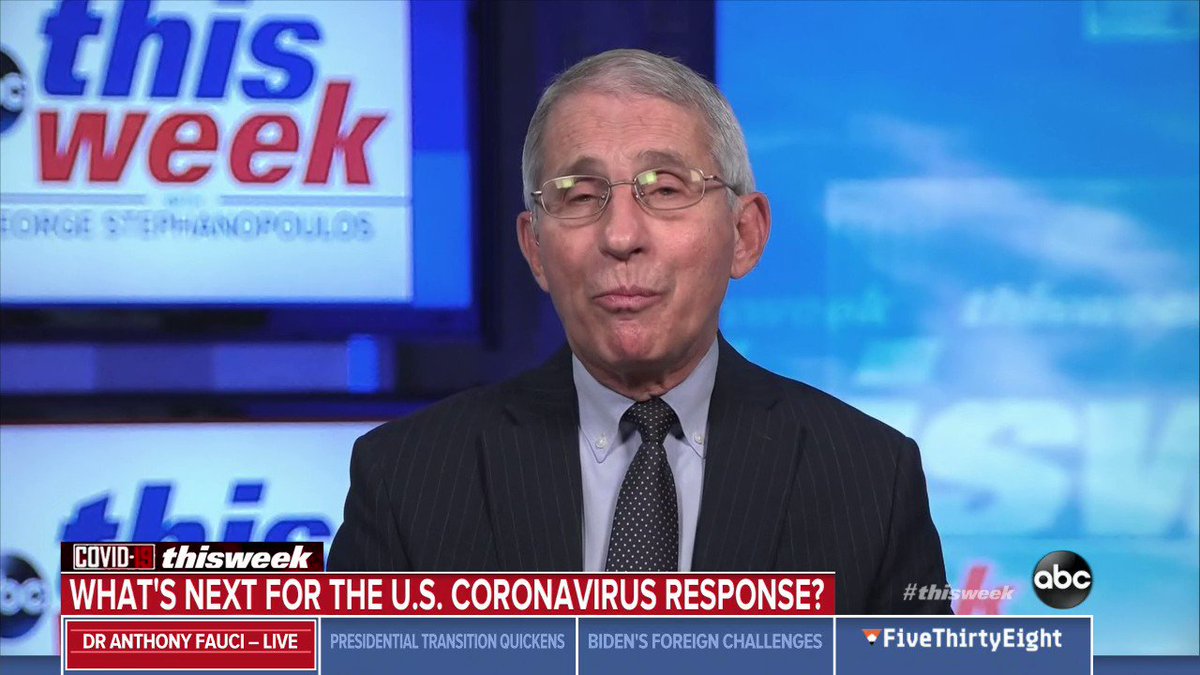
UNICEF: "Data from 191 countries shows no consistent link between reopening schools and increased rates of coronavirus
Deliberate practice is crucial if you want to reach expert level in any skill, but what is it, and how can it help you learn more precisely?
A thread based on @augustbradley's conversation with the late Anders Ericsson.
You can find my complete notes from the conversation in my public Roam graph:
https://t.co/Z5bXHsg3oc
The entire conversation is on
The 10,000-hour 'rule' was based on Ericsson's research, but simple practice is not enough for mastery.
We need teachers and coaches to give us feedback on how we're doing to adjust our actions effectively. Technology can help us by providing short feedback loops.
There's purposeful and deliberate practice.
In purposeful practice, you gain breakthroughs by trying out different techniques you find on your own.
In deliberate practice, an expert tells you what to improve on and how to do it, and then you do that (while getting feedback).
It's possible to come to powerful techniques through purposeful practice, but it's always a gamble.
Deliberate practice is possible with a map of the domain and a recommended way to move through it. This makes success more likely.
• 1297 USA Scholarships
• 5 Hot Tips for current B.S, Master/PhD applicants
• Admission and FULL Funding Info to Sweden🇸🇪, Australia🇦🇺, France🇫🇷, Germany🇩🇪 and China🇹🇷
• 6 IGTV Videos
Follow @Okpala_IU
A Thread
Are you working hard to study full time (Bachelor, MS, MBA, PhD) in the United States of America🇺🇸?
Here are 1297 verified Scholarships for year 2021
Search here: https://t.co/3AHhW7RUfK
Follow @Okpala_IU for more
Watch other videos on IGTV:
5 Hot Tips for current Bachelor, Master/PhD applicants
1. Standardized Tests (TOEFL, GRE, GMAT)
Yes, the school may have waived it for admissions but providing it definitely increasing your chances of getting funded. If it strengthens your overall profile, that is excellent.
2. Do not trivialize Letters of Recommendations
Remember that your application packet (all supporting documents) is what is being looked at while you are being considered for admission and funding. A lot of schools read LoRs very carefully so ensure you get strong letters.
Read my notes on LoRs:
If you are submitting a MS/PhD application for admission in the USA, this is for you.
— Ifeanyi Okpala (@Okpala_IU) June 23, 2020
Today, I am going to share one tip associated with the \u201cLetters of Recommendation\u201d required, which I think can make a lot of difference.
- Guiding your Recommenders on Information
Thread pic.twitter.com/uxPHB0W0Su
I’m launching my Forecasting For SEO course next month.
It’s everything I’ve learned, tried and tested about SEO forecasting.
The course: https://t.co/bovuIns9OZ
Following along 👇
Why forecasting?
Last year I launched https://t.co/I6osuvrGAK to provide reliable forecasts to SEO teams.
It went crazy.
I also noticed an appetite for learning more about forecasting and reached out on Twitter to gauge interest:
The interest encouraged me to make a start...
I’ve also been inspired by what others are doing: @tom_hirst, @dvassallo and @azarchick 👏👏
And their guts to be build so openly in public.
So here goes it...
In the last 2 years I’ve only written 3 blog posts on my site.
- Probabilistic thinking in SEO
- Rethinking technical SEO audits
- How to deliver better SEO strategies.
I only write when I feel like I’ve got something to say.
With forecasting, I’ve got something to say. 💭
There are mixed feelings about forecasting in the SEO industry.
Uncertainty is everywhere. Algorithm updates impacting rankings, economic challenges impacting demand.
It’s difficult. 😩
In many ways, I don't blame folks who tweet things like this. The media coverage of the schools situation in Covid-19 rarely talks about the quiet, day-in-day-out work that schools have been doing these past 9 months. 1/
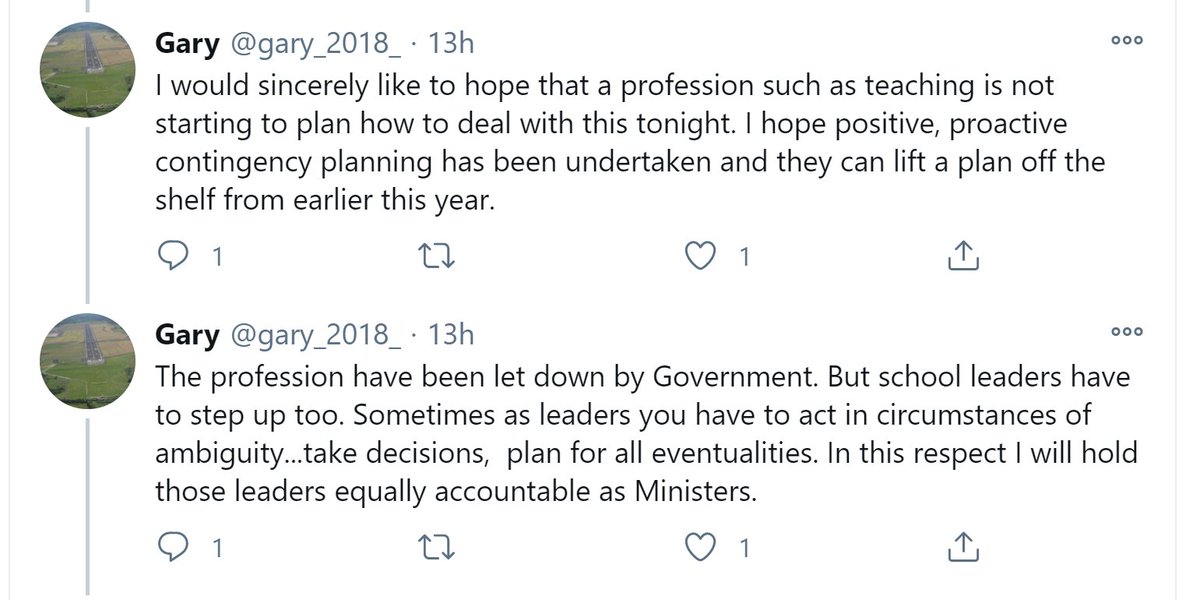
Instead, the coverage focused on the dramatic, last minute policy announcements by the government, or of dramatic stories of school closures, often accompanied by photos of socially distanced classrooms that those of us in schools this past term know are from a fantasy land. 2/
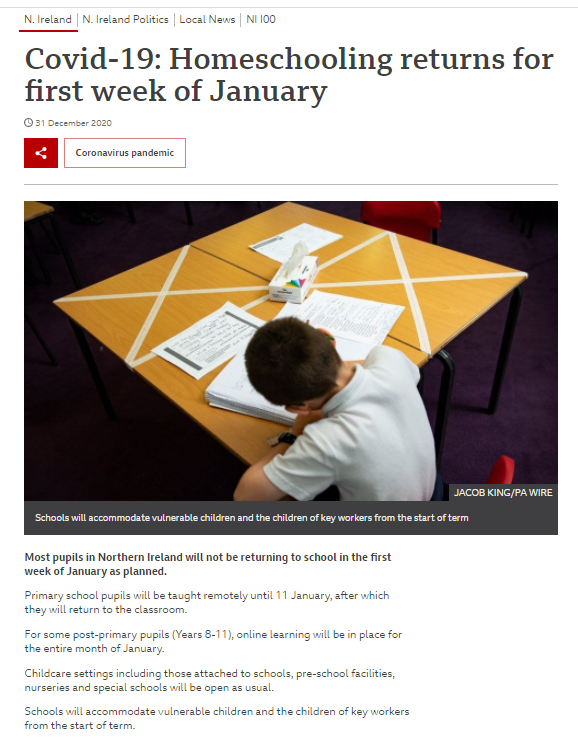
If that's all you see & hear, it's no wonder that you may not know what has actually been happening in schools to meet the challenges. So, if you'd like a glimpse behind the curtain, then read on. For this is something of what teachers & schools leaders have been up to. 3/
It started last March with trying to meet the challenges of lockdown, being thrown into the deep end, with only a few days' notice, to try to learn to teach remotely during the first lockdown. 4/
https://t.co/S39EWuap3b
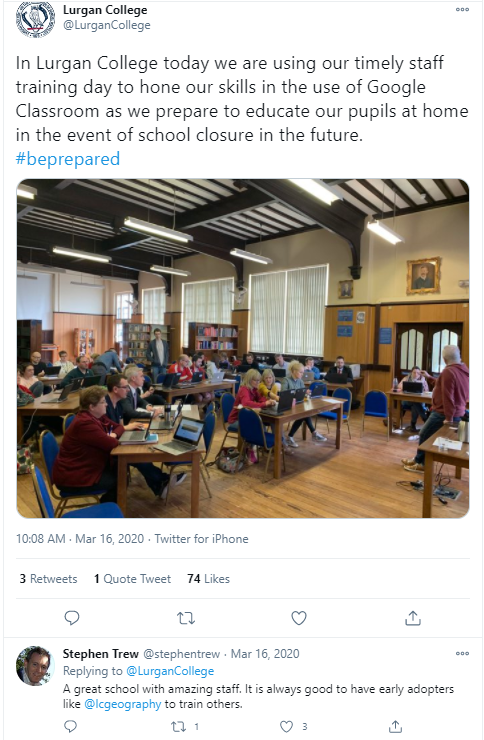
In Lurgan College today we are using our timely staff training day to hone our skills in the use of Google Classroom as we prepare to educate our pupils at home in the event of school closure in the future. #beprepared pic.twitter.com/E0LQkYqvBD
— Lurgan College (@LurganCollege) March 16, 2020
I wrote a policy document for our staff the weekend before our training as we anticipated what was to come, a document I shared freely & widely as the education community across the land started to reach out to one another for ideas and support. 5/
https://t.co/m1QsxlPaV4
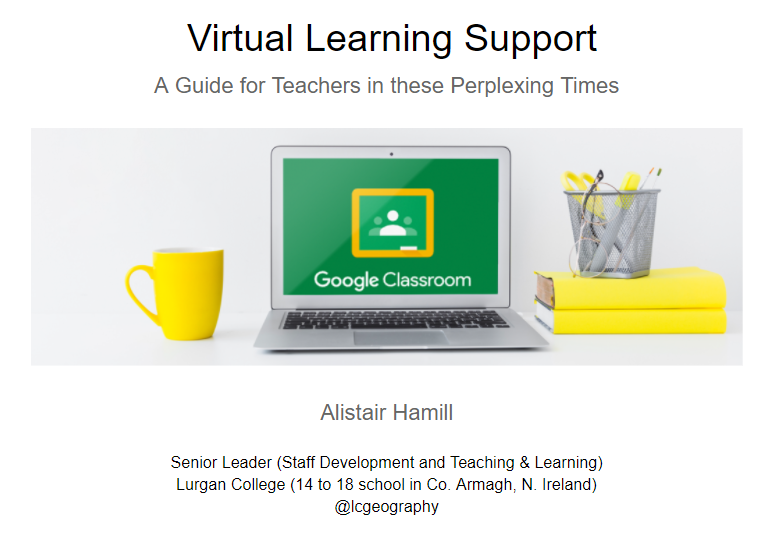
The topic was “LongCovid, Myalgic Encephalomyelitis & More”.
I quote from memory.
1/n
#MECFS #LongCovid
Have you registered for IMHA's next webinar on Long-COVID? Guest speaker Professor Trisha Greenhalgh.
— CIHR-IMHA Community (@CIHR_IMHA) January 12, 2021
When? Tomorrow: *Jan 13th.* 12pm ET
A few spots are left, but going fast!
Registration required: https://t.co/T4PbWNA35Y@KarimKhan_IMHA @CIHR_IRSC @trishgreenhalgh pic.twitter.com/xlWKi4QKF1
The bulk of Prof @Trishgreenhalgh’s presentation was on the importance of recognising LongCovid patient’s symptoms, and pathways for patients which recognised their condition as real. So far so good.
She was asked about “Post Exertional Malaise”... 2/n
PEM has been reported by many patients, and is the hallmark symptom of ME/CFS, leading many to query whether LongCovid and ME/CFS are similar or have overlapping mechanisms.
@Trishgreenhalgh acknowledged the new @NiceComms advice for LongCovid was planned to complement... 3/n
the ME/CFS guidelines, acknowledging some similarities.
Then it all went wrong.
@TrishGreenhalgh noted the changes to the @NiceComms guidance for ME/CFS, removing support for Graded Exercise Therapy / Cognitive Behavioural Therapy. She noted there is a big debate about this. 4/n
That is correct: The BMJ published Prof Lynne Turner Stokes’ column criticising the change (Prof Turner-Stokes is a key proponent of GET/CBT, and I suspect is known to Prof @TrishGreenhalgh).
https://t.co/0enH8TFPoe
However Prof Greenhalgh then went off-piste.
5/n









